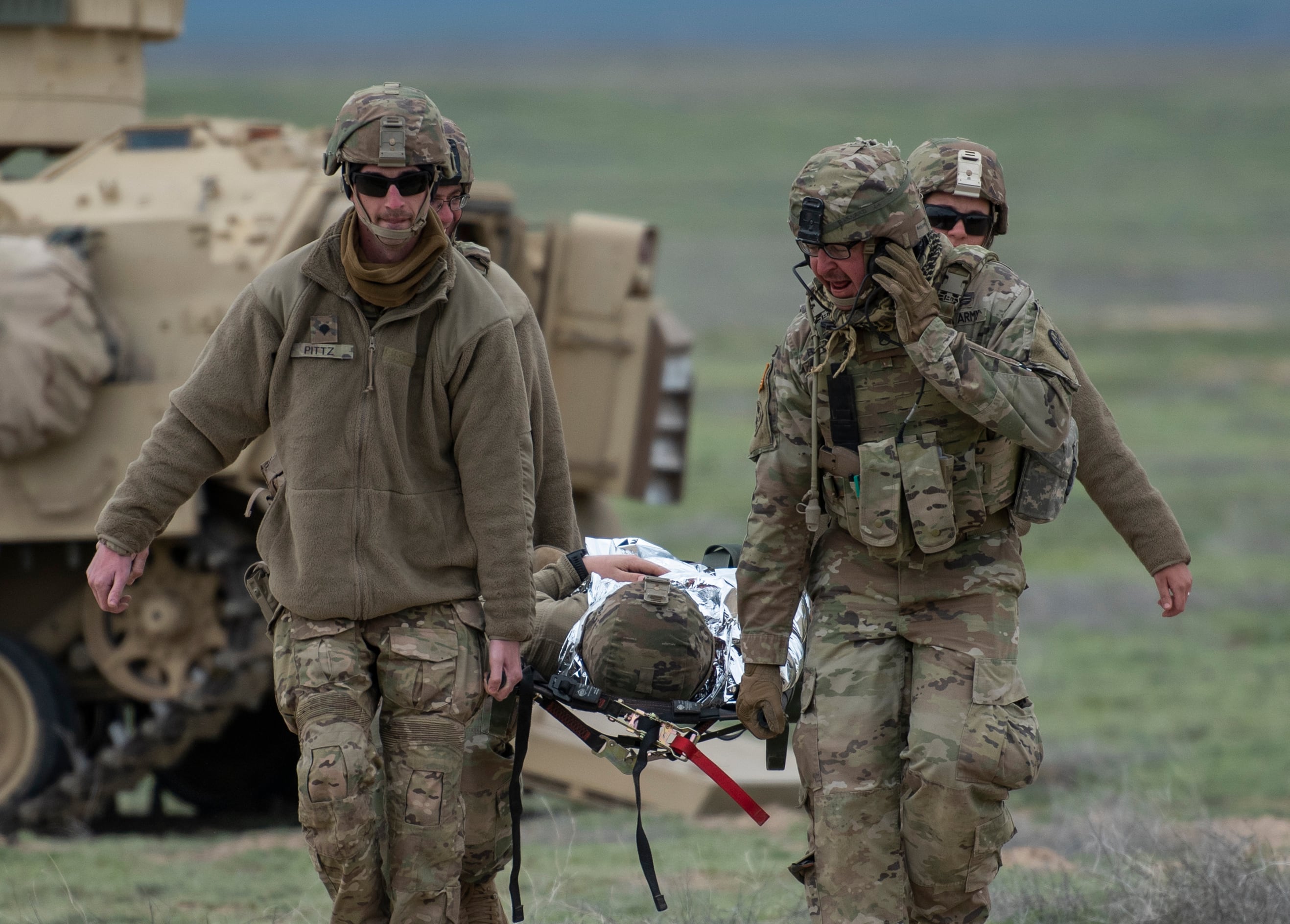Gunnery Sgt. Daniel Robert is a Marine’s Marine.
He has deployed six times, including once with 3rd Battalion, 5th Marines during a harrowing fight in Sangin, Afghanistan, in 2010 and 2011.
For two years, Robert has served as platoon sergeant for the Marine Corps Silent Drill Platoon, where he has inspired first-term Marines to come together as the public face for the Corps. His next assignment will be as a combat instructor at the School of Infantry.
When he’s not working or getting his PT in alongside the commandant, Robert spends his free time volunteering with the Special Olympics and other charities.
In the words of his company commander, Capt. Patrick McConnell: "If Gunnery Sgt. Robert does not exemplify core values of the military service, then it is time I resign."

Robert has been selected as the 2017 Marine Corps Times Marine of the Year.
"I still — 15 years later from the day I joined — love to come to work," he told Marine Corps Times in a recent interview. "The Marines under me make me love this job."
After enlisting in the Marine Corps in 2002, Robert deployed four times in his first six years, prompting Marine Corps leaders to tell him he needed a break, so he taught at a sergeants course in Hawaii.
Then came Sangin. Nothing in his previous deployments had prepared him for the environment there, he said.
"Our first killed-in-action was on our very first patrol, Day One, in Sangin," Robert recalled. "That kind of set the stage for how serious the next seven months were going to be for us."
Every day, the Marines experienced roadside bomb attacks, which killed Marines and other service members and local Afghans and cost them their limbs and lives, he said.
By the time 3/5 returned from Sangin, the battalion had suffered the highest casualty rate of any Marine unit in the Afghanistan war: 25 killed and 184 wounded. One of the Marines killed was 1st Lt. Robert Kelly, son of retired Gen. John Kelly who is now secretary of the Homeland Security Department.
"We had to constantly bring it in and have group discussions and make sure that everybody was still sane, mentally and physically, just from the things that were going on around us: People getting hurt, friends," Robert said. "It was just an all-around bad place."
Since July 2013, Robert has been based out of Marine Barrack Washington, D.C. His job with the Marine Corps Silent Drill Platoon involves selecting the Marines who will join the team and then spending 30 days in Yuma, Arizona, to perfect the drill sequence that they perform around the country.
Almost all of the members of the silent drill platoon are first-term Marines, but Robert manages to inspire them to look and perform as if they had spent years in the Corps, his company commander said.
"He comes through and demonstrates a level of care that reaches their heart, and then they want to perform and they want be disciplined and they want to be regimented because of the type of person he is," McConnell said.
Over the last 15 years, Robert has developed a leadership style that was particularly well suited for the silent drill team.
"I do not ever yell," Robert said. "Being a leader and being a Marine, that’s a hard trait to have. As you know, especially in the infantry, we’re very loud; we’re very outspoken. All of the Marines around me — to include higher and lower — they all know when I’m upset."
Robert starts his day by working out between 4:30-6 a.m. During that time, he often runs into Marine Corps Commandant Gen. Robert Neller at the gym, he said.
While he doesn’t talk to Neller during the workouts, Robert is still inspired by seeing the commandant making sure he can meet the new standards for the Physical and Combat Fitness Tests, which came into effect this year.
Since 2003, Robert has volunteered with the Special Olympics. He has coached a bowling team, built tents and stations for events and provided support to Special Olympics athletes by partnering with them as they ran through competitions, he said.
"He loves giving back," said his wife, Naylea. "I think for him, growing up, he didn’t have anything like that — anybody to help him. He basically raised himself. So when he gives back to the community — he gives back especially to kids — it’s like he’s giving a little bit of himself to just see them smile."
Robert said he has made it a point to volunteer with the Special Olympics whenever he’s available and he lets other Marines know that they can also help. He stressed that whatever joy he gets out of volunteering, his focus is on helping others.
"At the end of the day, it’s about them. ... It’s about making them feel wanted and respected and happy for the hour, two hours, however long that we’re out there with them," he said.






